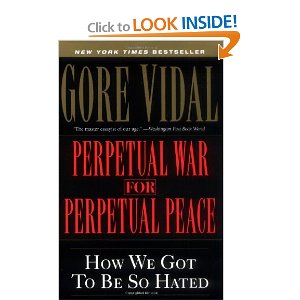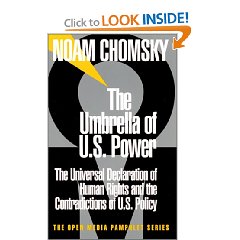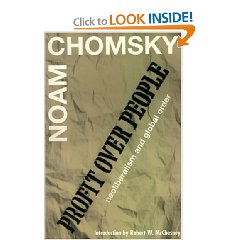The author excells at pointing out, in the most gracious way possible, how all of the preconceptions of the current administration, and in particular its penchant for unilateralist military bullying, have proven both unworkable in achieving their intended results, while also unsuitable in being translated to economic gains. Military power does not translate into economic power or added prosperity.
This book is *loaded* with common sense and specific ideas for getting business leadership back into the global stabilization dialog. The author focused on two ideas that I consider to be especially important: the need to reexamine how the taxpayer dollar is being spent on national security, with a view to redirecting funds (I add: from military heavy metal to what Joe Nye calls soft power: diplomacy, assistance, intelligence); and on the urgency of restoring the independence and expanding the mandate of the U.S. Information Agency so as to overcome the acute misperceptions of the US fostered by Saudi-funded schools for youths being taught to hate, and little else.
The non-governmental organizations come in for special scrutiny, and the author has many good ideas, not only for promoting better business-NGO partnerships, but for auditing the NGOs and not ceding to them the moral high ground. As he points out, many organizations that oppose globalization or specific business practices do not have any standards or transparency with respect to who funds them, how decisions are made, and so on.
Finally, the author concludes with a focus on business education. While citing many improvements made by many schools, he notes that a comprehensive study and reengineering overall has not occurred since the late 1950's and early 1960's, and that the time is long past when graduate business education must be completely revamped. He is exceptionally astute and credible throughout the book as he explores the many things that CEOs need to know but do not receive training on, to include understanding and dealing with government, NGOs, citizen advocates, and the real world. As he notes, Master's in Business Administration tend to train students for the first years in the corporation, not the long-haul. He places some emphasis on the need to consider continuing education as an extension of the original program, and I immediately thought of an MBA as a limited-term license that must be renewed by recurring personal investments in education.
As someone whose opening lecture line to citizens and businessmen is “if the State fails, you fail,” I found this book extraordinarily valuable and urgent. We get the government we deserve. If citizens do not vote, if businessmen do not think of the larger social goods and social contexts within which they operate, then the government will prove incapable and at some point the party will be over.
Yale has always had an extra helping of morality and humanity; in this book the dean of the business school ably makes the case that business leadership and engagement in national security and global stabilization is the sine qua non for continued prosperity. He's got my vote–if I were a mature student looking for a place to learn, he's put Yale right at the top of my list.











